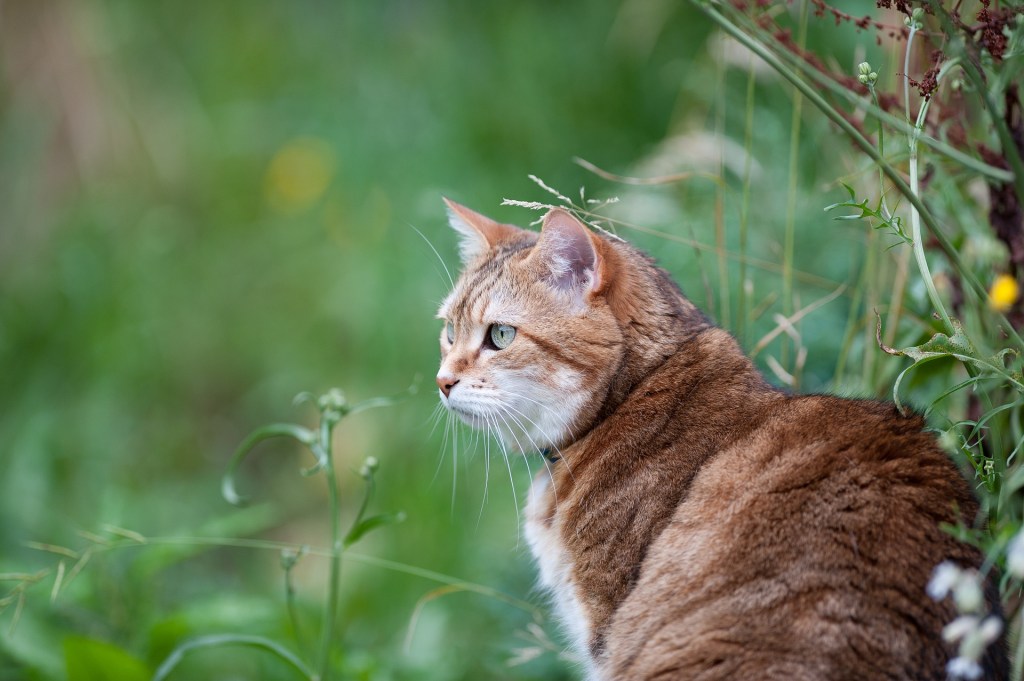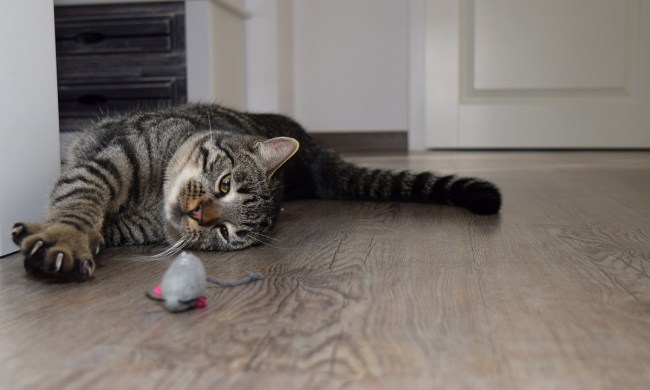It’s an awful feeling — to stand at the door as the sun is fading, calling for your cat and not seeing him emerge from the trees or stroll up through the yard to the porch. If your cat has ever gone missing, then you’ve experienced this feeling firsthand. Do you panic? Go off searching for your cat? Give him a few more hours to come home? The answer depends on your cat. If you have a cat who spends time outside, then there’s a chance he may go missing at some point. You’ll need to consider how comfortable you are with that prospect when deciding if you should let him out during the day.

How long do cats go missing for?
Cats who tend to wander off can be gone for a day, overnight, or even a few days. It really depends on the individual cat and his habits.
So, why do cats go missing for days? There are a variety of reasons.
- Unneutered male cats often go wandering in search of females to mate with.
- Your cat might stray while hunting or exploring.
- If a predator comes into your yard, it might frighten your cat away so he’s afraid to come back for a while.
- After a move, your cat might wander off from confusion or fear.
- Being sick or injured can also prompt a cat to strike out to find a quiet place where he can be alone.
When to worry
Every cat is different, and some cats may wander farther from home than others. You’ll need to get to know your cat’s habits and his schedule. Big changes from that schedule are always a reason to worry and go looking for your cat.
You can encourage your cat to come home every day by feeding him dinner at the same time. Stick to a consistent schedule and develop a call for your cat, like a whistle. Add in some cat treats to make it even more rewarding for your cat to show up at your door before it gets dark out.
It’s also important to consider your cat’s safety, especially if he wanders. Cars, predators, and even humans are all potential risks to your cat’s safety. If your cat is frequently gone overnight or for days at a time, it may be safer to make him an indoor-only cat.

How to keep track of your cat
If your cat tends to roam, the first thing to do is to neuter him if he isn’t already. This won’t just help reduce your cat’s urges to go searching for a mate, but it’s also the responsible thing to do. Neutering your cat helps prevent unwanted litters, and it can also help him stay safe by keeping him close to home.
You can also choose from a variety of trackers to help monitor where your cat is. Pet trackers and cat trackers are devices that can be attached to your cat’s collar. When choosing a tracker, carefully review how it works. Some have short ranges of just a few hundred feet, so they’re useful for locating your cat in your yard or home, but not much more. GPS-based units have larger ranges.
Don’t forget all the basic measures you can use to help your cat get back home again if he’s ever lost. Have your cat microchipped and make sure your contact information is up to date in the microchip database. It’s also a good idea to have your cat wear a collar with a safety release. Put a tag on the collar with your contact information. The collar serves as an important visual sign that your cat has a home and may be lost.
Having your cat go missing is a frightening experience, and if your cat is gone from home longer than usual, you’re bound to start worrying. If you suspect that your cat is lost, then acting quickly is key. Let neighbors know he’s missing, post on your social media pages, put up signs, call local animal shelters and your animal control officer, and do anything else possible to get the word out. The more people who are looking for your cat, the better, and the sooner he may be returned home to you safe. Hopefully, you never have to deal with this scenario, but having a plan in place can help just in case.


